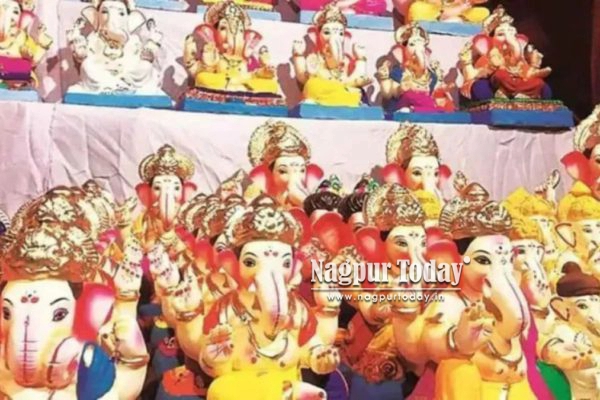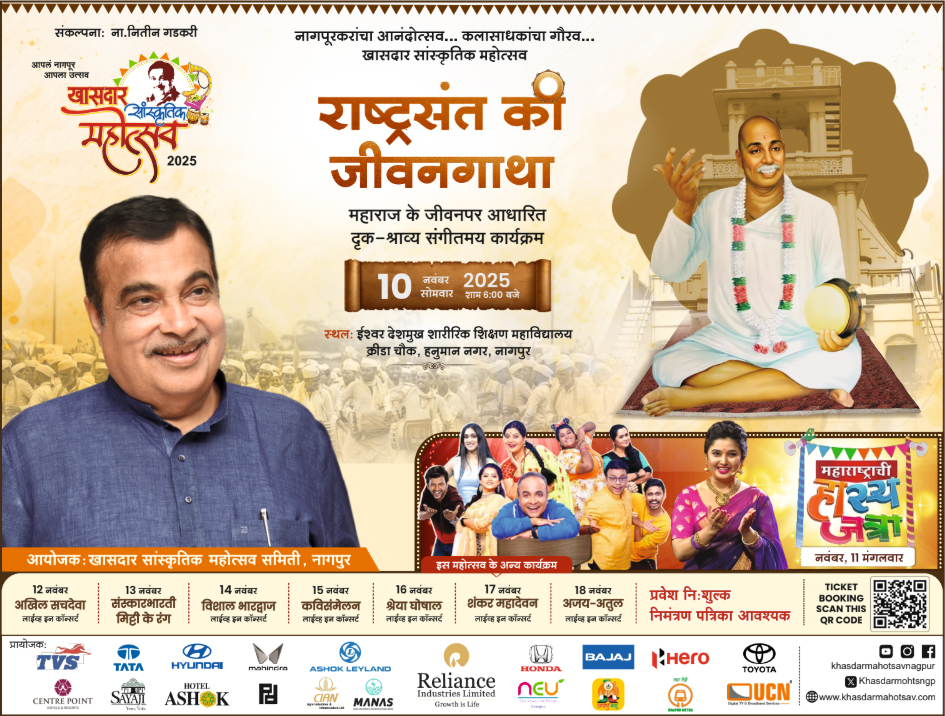Nagpur: For generations, Nagpur’s murtikars (idol makers) have sculpted Ganesh idols out of clay with painstaking devotion, keeping alive both culture and ecology. But this year, their craft has taken a severe beating. The flood of Plaster of Paris (POP) idols, cheaper, mass-produced, and brought in from outside the city, has pushed local artisans to the brink.
Despite months of labour, sales of eco-friendly idols plummeted this Ganesh Chaturthi. One artisan, who had crafted around 800 small and medium idols, admitted he could sell only 500. “Most buyers picked up smaller ones. We hoped the stock would clear, but we’ll now have to wait until Diwali. That’s our only hope,” he said, his voice laced with disappointment. Online bookings that initially raised expectations also collapsed when customers switched to POP idols at the time of delivery, citing price differences.
The pain is not limited to small-scale makers. Larger idol sculptors, who spend months creating medium and big idols, say sales were so poor that even their basic costs went uncovered. “We give our sweat and soul to every idol, but people reject clay idols over the tiniest imperfection because they can buy POP ones at half the price,” said one artisan. Another, who usually sells dozens of big idols, revealed he could barely manage 15–16 sales this year. “POP versions are cheaper, even in large sizes. Our only solace is when a mandap organizer takes an idol home with reverence,” he lamented.
Adding to their woes is the influx of sellers from Madhya Pradesh, Chhattisgarh, and nearby districts, who rent shops in Nagpur’s famous Chitar Oli market just before the festival. “They flood the market with POP idols, leaving us overshadowed,” said another artisan.
The government’s lifting of the POP ban is being blamed for this crisis. “With POP idols flooding every street, traditional artisans were bound to suffer,” said Suresh Pathak, President of the Paramparik Murtikar and Hastakala Karagir Sangh. “The only solution was a complete ban. Even now, idols are being sold without the mandatory red markings, despite court orders. If this continues, our clay idols and centuries-old craftsmanship will vanish.”
The mood in Nagpur’s murtikar community is grim. What is at stake, they say, is not just their livelihood, but a cultural and ecological legacy. As they cling to hopes of recovering losses during Diwali, the battle of tradition versus convenience has never looked more one-sided.

















